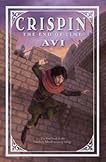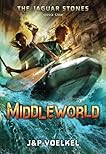Boston Globe 110208
In 'Major,' Harrison plots an impulsive odyssey
By John Dufresne | November 2, 2008
2
Grove, 255 pp., $24
"Wife. Farm. Dog. Gone." Cliff, the protagonist of Jim Harrison's "The English Major," finds himself at 60 detached from all that he has held dear, including Vivian, his wife of 38 years. Vivian is a real estate agent who likes butterscotch schnapps, snack food, and her old high-school sweetheart these days more than she likes her cheating husband. Cliff, the English major of the title, has been parked in his Michigan farm for 25 years, living simply and hermetically, his recent romantic indiscretion with a waitress notwithstanding. But now Vivian has sold the family farm. Cliff isn't sure where he's going, but he can't stay here.
When he finds a puzzle of the United States while sorting through an old trunk, Cliff decides he'll set off to see America. The puzzle connects Cliff to his childhood and to his beloved brother Teddy, who adored it - Teddy had Down syndrome and drowned when he was 11.
At first the journey proves exhilarating and curative: "Everything I saw was something I had never seen before." But Cliff is uneasy and misses the routine of agrarian life. Cliff's son Robert, a film location specialist, tells his father, "Dad, you are on a great adventure and have been liberated to a new life." But Cliff doesn't want to be free. "I want Vivian back," he declares early on. Well, he does and he doesn't. He will tell Robert, "I don't care if that bitch drops dead." Still, he longs for home, if not for marriage, and for the comfort of a woman.
He satisfies this craving with a phone call to a favorite ex-student, Marybelle, whom he remembers as "an off-brand peach," but will soon come to think of as a "ditz" and a "haphazard typhoon." Marybelle is a tad bipolar and is resolutely addicted to her cellphone. "It's a prime weapon against our essential loneliness," she tells Cliff. She's along for a ride to Bozeman to see a cousin. Or so she says. And so we're off.
The plot, however, does not so much build as drift. Cliff and the married Marybelle meander their way through the upper Midwest, making rowdy love in a series of motels. Cliff, we hope, is wondering, as we are, just what the purpose of this odyssey is. Will adultery be his only adventure? One morning in Montana, Marybelle asks Cliff if he's really searching for a creative solution to his life. He tells her he's decided to rename the states and the birds of America because "birds simply don't deserve the banal names we've given them." This enterprise might seem rather pointless and uninspired to us, but Cliff now has his requisite purpose and begins to consider the naming a sacred duty.
When Cliff learns that Marybelle has no cousin in Bozeman, no brother in Africa, that she suffers from "affection binges," which her long-suffering husband forgives, and that all of what she's told Cliff about herself is a fiction, he leaves her with her husband and drives on to the West Coast, where he'll visit Robert.
Problem is, we miss Marybelle, maddening as she could be. Cliff's an unusually dull traveling companion. His eyes are seldom on the spectacular panoramic vistas but are focused instead on the sinuosities of women's backsides. One derriere could start a war, another win the Olympics "if they had sense enough to have a best butt competition." And so on.
It's not that Cliff is shallow, but he has allowed himself to slump into a sentimental and parochial life. He once taught school and then let his profound distaste for teaching spoil his love for literature. Once he thought that books could save his life. Now he lets a child's jigsaw puzzle guide his way. When the puzzle fails him, he defers to his enigmatic and licentious friend AD (short for "alcoholic doctor"), who serves as both provocateur and sage, and who proffers this advice: "You're trying to start a new life at sixty, which is also impossible. You can only try variations on your common theme." And maybe AD is right.
Clearly plot is not the engine that drives Harrison's novel; character is, and Cliff is a poignant, if not a spellbinding, one. He sees himself as just another American fool on the loose. But Cliff's a reluctant nomad. This most pragmatic man acted, for once, impulsively. He tells us he has returned to his purest instincts on the trip. "Obviously my road trip had begun to tug my mind back from the so-called real world to the world of books I had so valued in my late teens and early twenties." Perhaps it has. Perhaps he was saved by the one impulsive act, the leaving, which freed him from the life of routine and preoccupation, and that liberation has allowed his suddenly unfixed mind to drift, to daydream, to imagine, and to observe the world outside himself. Cliff tells us about a startling conversation he overheard. One woman tells another that "her baby had only learned to crawl backwards which meant that objects of his desire were always receding." And now we understand what Cliff is up to - he's driving away from home with his gaze in the rearview mirror.
John Dufresne's most recent book is the novel "Requiem, Mass."
Subscribe to:
Post Comments (Atom)































No comments:
Post a Comment